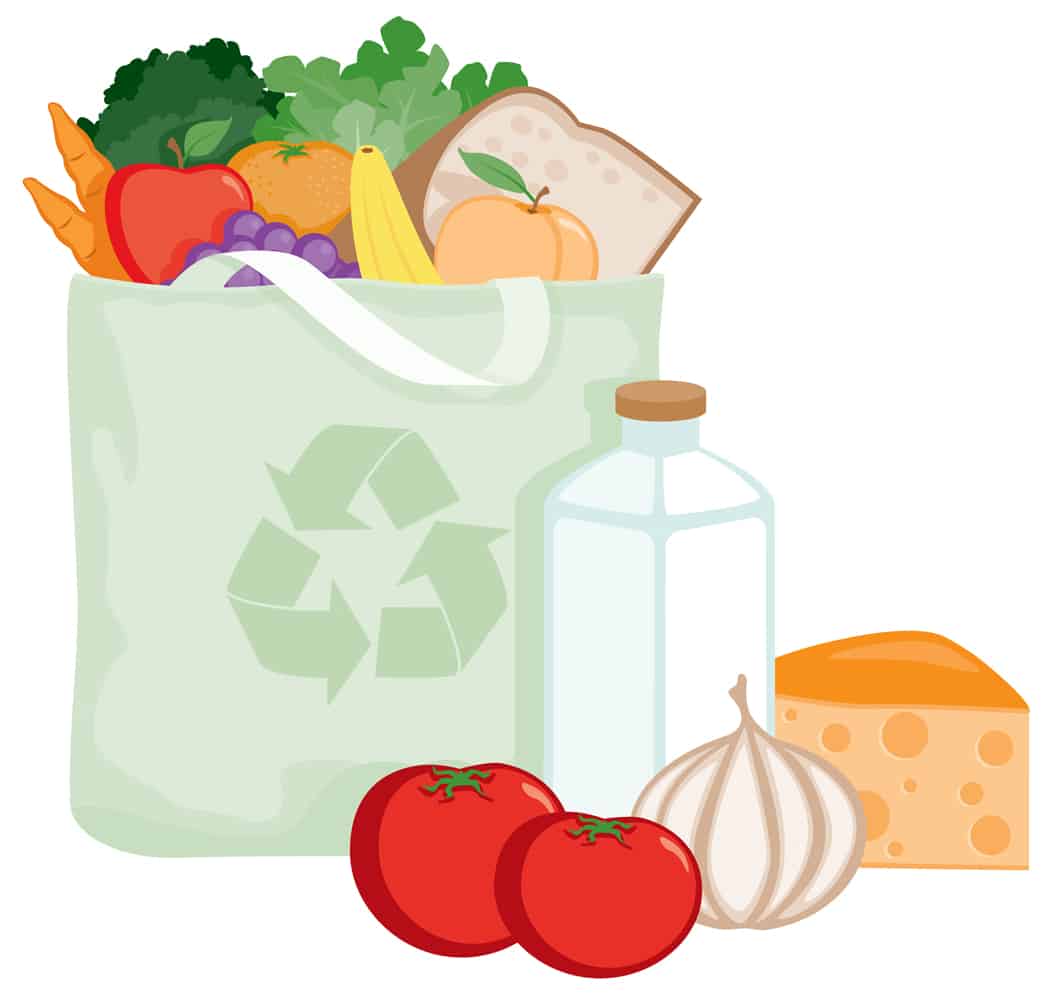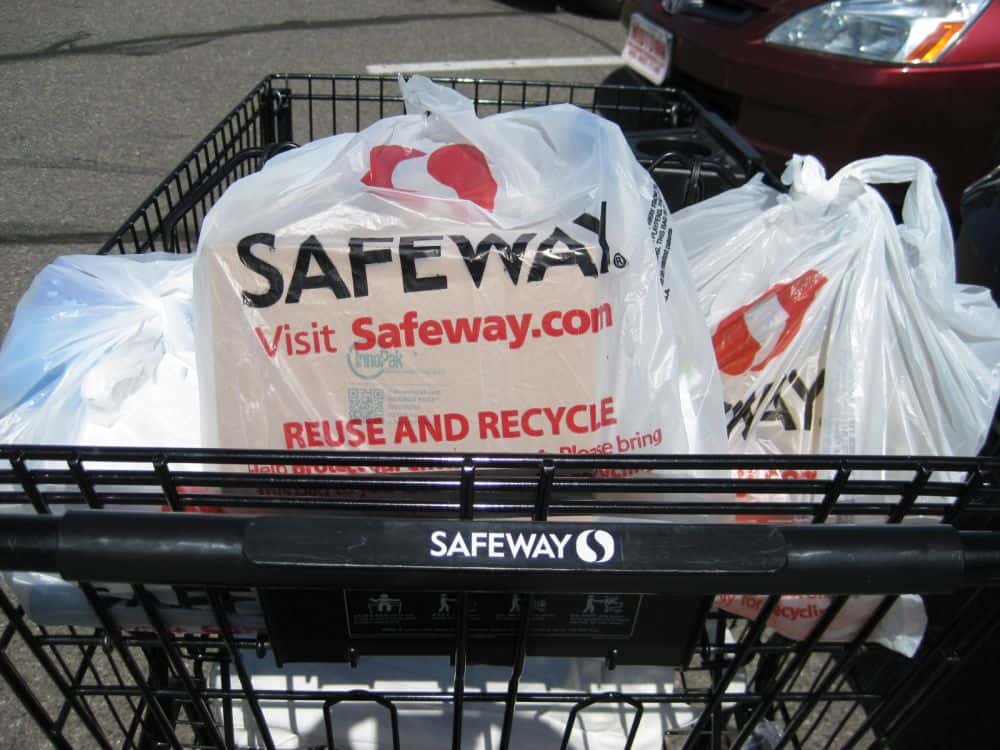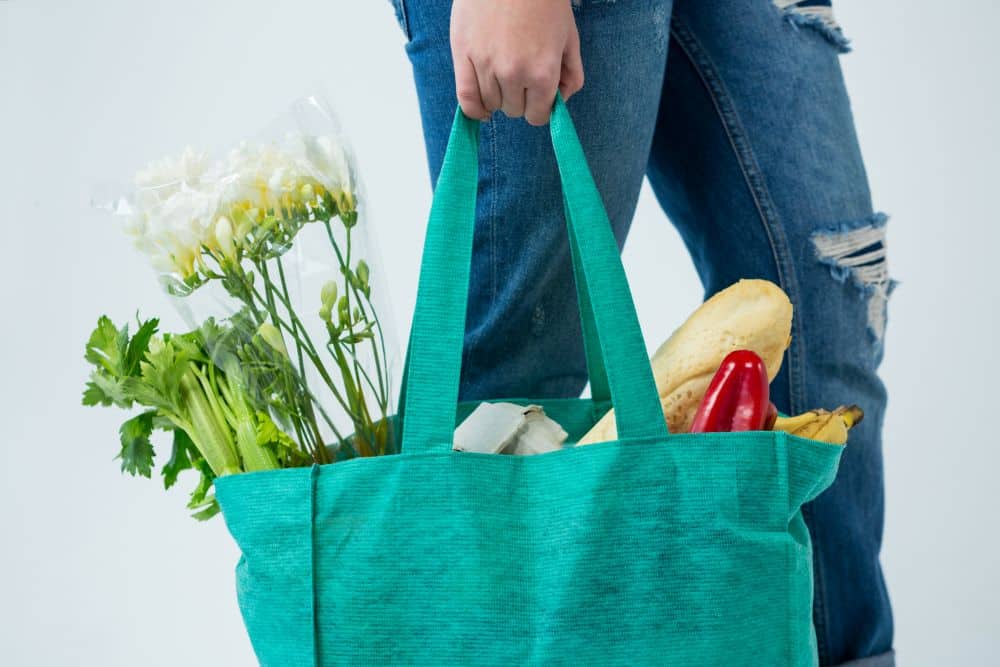 Get your reusable bags ready? Every shopper in Colorado is going to have to bag a new fee in the new year. Unless you’ve been living under a rock, you should know the environmental challenges plastic bags cause for all of us. (Actually, you’ve probably found a plastic bag under that rock!) An estimated 4.6 million bags are used every day in Colorado, according to Eco-Cycle.
Get your reusable bags ready? Every shopper in Colorado is going to have to bag a new fee in the new year. Unless you’ve been living under a rock, you should know the environmental challenges plastic bags cause for all of us. (Actually, you’ve probably found a plastic bag under that rock!) An estimated 4.6 million bags are used every day in Colorado, according to Eco-Cycle.

Unfortunately, most of those bags end up in the waste system.
While many Coloradans have recycled plastic bags or used reusable bags for years, there will now be a financial incentive to be more environmentally aware.
In 2021, Colorado passed the Plastic Pollution Reduction Act (PPRA) requiring most stores with three or more locations in the state to collect a carryout bag fee.
To learn more about PPRA, click here.
Here’s what you need to know about Colorado’s new plastic bag fee:
What is the fee?
The fee is 10¢ per bag.
The fee is not subject to state and state-administered local sales tax.
When does the new fee go into effect?
The law goes into effect on Sunday, January 1, 2023.
IMPORTANT: Beginning January 1, 2024, the act prohibits stores and retail food establishments from providing single-use plastic carryout bags to customers.
On and after January 1, 2024, stores may provide only a recycled paper carryout bag to a customer at the point of sale at a fee of 10¢ per bag or a higher fee imposed by the municipality or county in which the store is located.
What bags are included?
All plastic and paper bags will incur the fee.
The act does not apply to materials used in the packaging of pharmaceutical drugs, medical devices or dietary supplements.
What stores are affected?
Most stores with three (3) or more locations in Colorado will be required to comply with the fee.
If I have my groceries delivered, will I still be charged?
Yes. No matter how you obtain your groceries or merchandise, you will be charged the bag fee.
Is anyone exempt from the fee?
Customers who provide proof of participation in a federal or state food assistance program are exempt from the fee.

What will the average fee be for most shoppers?
It’s estimated that, on average, most shoppers walk away from the grocery store with 10 bags. And, yes, double-bagging heavy groceries will cost an extra dime.
With the new fee, 10 bags will cost you an additional $1 at checkout.
For bargain hunters, every dime counts. And, when you do the math, the fee adds up. Assuming you shop for groceries twice a week, that’s an extra $8 a month and $96 annually. And that’s just for grocery shopping.
Add in your quick trips to Target, Walmart, Walgreens and other stores and you could easily top a few hundred dollars annually in bag fees alone.
For many smart shoppers, a few hundred dollars annually is “big bucks.” It could help pay off a bill or help with an unexpected home repair.
Or, for others, it could be used for a few date nights or much-needed massage. The point is that it’s money you’re just throwing away…literally. Ten cents adds up and quickly!
What will be the fee be used for?
Stores will keep 40% of the bag fee to cover compliance and administration costs. The remaining 60% will be given to the municipality or county in which the store is located.
The fee will help to cover administrative and enforcement costs, as well as fund recycling and sustainability efforts.

Helpful tips for bargain hunters
♦ Start collecting plastic bags now for use after the law goes into effect. Just collect them in a large trash bag in the garage or kitchen closet. By January 1, you’ll have a bagful of bags.
♦ Some shoppers find cardboard boxes carry more groceries and are easier to transport. (Think Costco or Natural Grocers.) You may want to find a durable cardboard box or plastic container as your go-to shopping courier.
♦ Many retailers already sell low-cost reusable bags at checkout (King Soopers and Safeway) — often for just a buck or two. Now’s the time to buy one or two every few grocery trips, so you’re ready for the change.
You’ll also find inexpensive and durable reusable bags at retailers such as TJ Maxx and Bed, Bath & Beyond. For most, 8 to 10 reusable bags should suffice — unless you have a large family.
♦ You get what you pay for. There’s nothing wrong with “cheap” reusable bags. However, there are lots of options for reusable bags.
Many shoppers like canvas bags, because they are durable and last a long time. (Plus, they’re great for carrying heavier items.) While they are more expensive, canvas bags don’t have to be replaced as often and they’re washable.
♦ The biggest mistake for shoppers? (Drum roll, please!) Forgetting to take the reusable bags with us to the store.
To get in the habit, leave a sticky note on your dashboard now — “Don’t forget reusable bags!” After a few months, you won’t even need a reminder. It will become second nature.
♦ Leave the reusable bags in the trunk of your car. That way, if you do forget, you won’t have to travel all the way back home.
♦ And, for those who love doing double-duty, forget bags altogether. Hear us out!
You could easily just put the groceries back in the cart, take them to your car and put them in the trunk or back seat one-by-one. Then, when you get home, do the same.
True, it means multiple trips from the car to the kitchen, but it also means lots of extra steps in your exercise routine.
It’s all a matter of how you look at it. Rather than seeing it as “a chore”, see it as an opportunity to get in a quick work-out a few times a week!
Where to find free reusable bags
While we haven’t heard of any bag giveaways, will will keep scouting for them. If you hear of any places giving them away, drop an email to us at Bryan@MileHighOnTheCheap.com and we’ll spread the word.
Leave a Reply